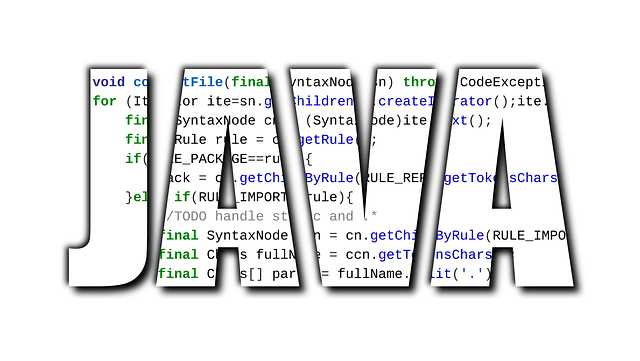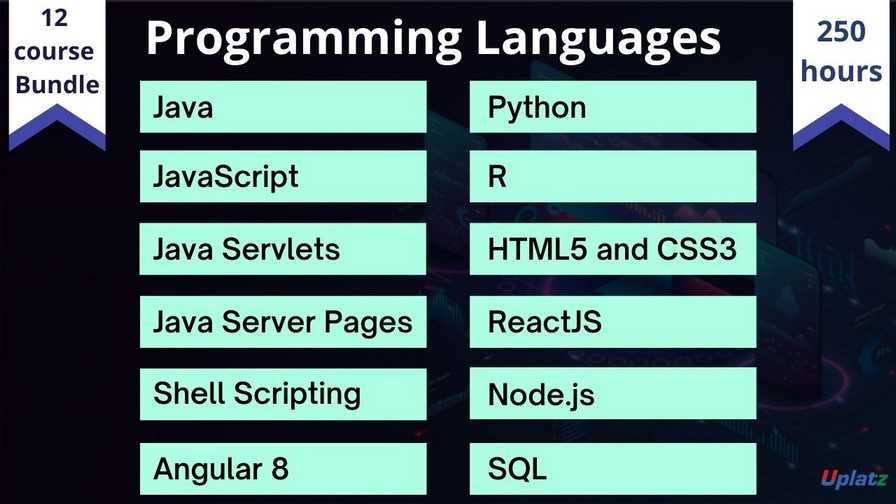Jenkins
Learn how to build strong automated processes like Pipelines, CI/CD Workflows and more.Preview Jenkins course
Price Match Guarantee Full Lifetime Access Access on any Device Technical Support Secure Checkout Course Completion Certificate 83% Started a new career
BUY THIS COURSE (
83% Started a new career
BUY THIS COURSE (GBP 12 GBP 29 )-
 93% Got a pay increase and promotion
93% Got a pay increase and promotion
Students also bought -
-

- Java Programming Basics
- 20 Hours
- GBP 12
- 2872 Learners
-

- Bundle Course - Programming Languages
- 250 Hours
- GBP 22
- 2454 Learners
-

- Career Path - IT Consultant
- 200 Hours
- GBP 32
- 5851 Learners

This Jenkins Online Training will make you an expert in building and testing your projects continuously so that any changes can be integrated into the project as fast as possible and without much hassle to get new builds. Simply opt for this course and master Jenkins.
This course will teach you how to use Jenkins using the Jenkins DSL and Jenkins Pipelines (Jenkinsfile). It's a new way of using Jenkins, rather than using freestyle projects. This course will explain you about infrastructure as code and automation to make sure you understand how Jenkins Pipelines fits within this new way of thinking.
It'll show you how to integrate Jenkins Pipelines with popular software tools, like:
• Docker
• GitHub / Bitbucket
• JFrog Artifactory
• SonarQube
• Onelogin (Using SAML)
This CI/CD Pipelines with Jenkins Certification Training Course will help you learn server automation, continuous integration, build pipelines and configuration tools, automated testing and code quality improvement, and distributed system in Jenkins through intensive, hands-on practice assignments.
• Jenkins is a powerful and flexible automation tool; It is used to automate almost anything.
• Go faster and learn how to build strong automated processes like Pipelines, CI/CD Workflows and more!
• In the DevOps World, Jenkins is one of the best cards on the table.
Course/Topic 1 - Course access through Google Drive
-
Google Drive
-
Google Drive
• How to set up your development environment.
• How version control works.
• How to begin implementing testing in your environment.
• The why and how of database schema migrations.
• What Jenkins is and why you should care.
• Understand the Continuous Integration/Delivery concepts and Build Pipelines.
• Configure and build basic Tools/Plugins.
• Use Jenkins to set up Build Pipelines.
The Jenkins Certification ensures you know planning, production and measurement techniques needed to stand out from the competition.
Jenkins is an open source continuous integration/continuous delivery and deployment (CI/CD) automation software DevOps tool written in the Java programming language. It is used to implement CI/CD workflows, called pipelines.
Jenkins is an open source automation server written in Java. It is used to continuously build and test software projects, enabling developers to set up a CI/CD environment. It also supports version control tools like Subversion, Git, Mercurial, and Maven.
Jenkins tool also supports cloud-based architecture so that you can deploy Jenkins in cloud-based platforms. The reason why Jenkins became popular is that it was created by a developer for developers.
Jenkins Certification is a professional-grade certification that demonstrates your understanding of CI/CD concepts and DevOps best practices as well as the major features of Jenkins and, optionally, CloudBees Core.
Jenkins pipeline is a set of plugins that support the implementation and Integration of continuous delivery pipelines into Jenkins. Jenkins certification is important for learning the course. You can learn it from Janbask Training and get maximum practice.
Uplatz online training guarantees the participants to successfully go through the Jenkins Certification provided by Uplatz. Uplatz provides appropriate teaching and expertise training to equip the participants for implementing the learnt concepts in an organization.
Course Completion Certificate will be awarded by Uplatz upon successful completion of the Jenkins online course.
The Jenkins draws an average salary of $115,000 per year depending on their knowledge and hands-on experience.
Freestyle Project in Jenkins is an improvised or unrestricted build job or task with multiple operations. Operations can be a build, pipeline run, or any script run. Maven project is selected for managing as well as building the projects which contain POM files.
Great thing about Jenkins is it works on Windows, Linux and Mac OS. Cost of using Jenkins is free because it's open source. Although you need a server to host it, you must maintain and update and that's your responsibility.
Note that salaries are generally higher at large companies rather than small ones. Your salary will also differ based on the market you work in.
Web logic Administrator.
Software Development Engineer(SDE).
DevOps Engineer.
1. What is Jenkins?
Jenkins is a self-contained, open-source automation server that can be used to automate all sorts of tasks related to building, testing, and delivering or deploying software. Jenkins can be installed through native system packages, Docker, or even run standalone by any machine with a Java Runtime Environment (JRE) installed.
2. Tell me something about Continuous Integration, Continuous Delivery, and Continuous Deployment?
Continuous Integration: A software development process where the changes made to software are integrated into the main code as and when a patch is ready so that the software will be always ready to be - built, tested, deployed, monitored - continuously.
Continuous Delivery: This is a Software Development Process where the continuously integrated (CI) changes will be tested & deployed continuously into a specific environment, generally through a manual release process, after all the quality checks are successful
Continuous Deployment: A Software Development practice where the continuously integrated (CI) changes are deployed automatically into the target environment after all the quality checks are successful
3. What are the common use cases Jenkins is used for?
Jenkins being open-source automation can be used for any kind of software-based automation. Some of the common use-cases include but not limited to -
· Software build jobs
· Sanity/Smoke/CI/Regression test jobs
· Web/Data Scraping related jobs
· Code coverage measurement jobs
· General-purpose automation
· Reverse Engineering jobs
· Key Decoding jobs & many other jobs where software automation will be applicable.
4. What are the ways to install Jenkins?
Jenkins can be installed using -
1. Native System Package Manager like - apt (Linux), brew (Mac), etc.
2. Docker (popular docker images for Jenkins is available for different platforms like Unix/Mac/Windows in the docker registry)
3. Kubernetes (available as a helm chart and can be installed on our Kubernetes clusters)
4. Standalone (on any machine with a Java Runtime Environment installed)
5. What is a Jenkins job?
A Job/Project is the fundamental unit of a logical work (like a software build, an automation task, test execution, etc) using the Jenkins automation server and other required plugins, configurations & infrastructures.
Jobs can be of different types like - a freestyle project, a multi-configuration project, a pipeline project, a multi-branch project, etc.
6. What is a Jenkins Pipeline?
Jenkins Pipeline
The pipeline is a special type of Jenkins job - simply a sequence of steps controlled by a defined logic - which Orchestrates long-running activities that can span across multiple build agents. It is suitable for building pipelines (formerly known as workflows) and/or organizing complex activities that cannot be easily achieved using a freestyle job.
7. What are the types of Jenkins pipelines?
Jenkins Pipelines can be either - a Declarative pipeline or a Scripted Pipeline. Declarative pipeline makes use of numerous, generic, predefined build steps/stages (i.e. code snippets) to build our job according to our build/automation needs whereas, with Scripted pipelines, the steps/stages can be custom-defined & used using a groovy syntax which provides better control & fine-tuned execution levels.
8. Explain Jenkins Multibranch Pipeline?
Jenkins Multibranch Pipeline
It is a pipeline job that can be configured to Create a set of Pipeline projects according to the detected branches in one SCM repository. This can be used to configure pipelines for all branches of a single repository e.g. if we maintain different branches (i.e. production code branches) for different configurations like locales, currencies, countries, etc.
9. How do you store credentials in Jenkins securely?
Credentials can be stored securely in Jenkins using the Credentials plugin, which stores different types of credentials like - Username with a password, SSH username with the private key, AWS Credentials, Jenkins Build Token, Secret File/Text, X509 & other certificates, Vault related credentials securely with proper encryption & decryption as and when required.
10. How can we stop a scheduled job from being executed temporarily?
Disable the job from the job details page to temporarily stop all scheduled executions & other factors/events from triggering the job and enable it back to resume the job schedules/triggers. If a job is not required permanently, we can delete the job from the jobs list view page.









